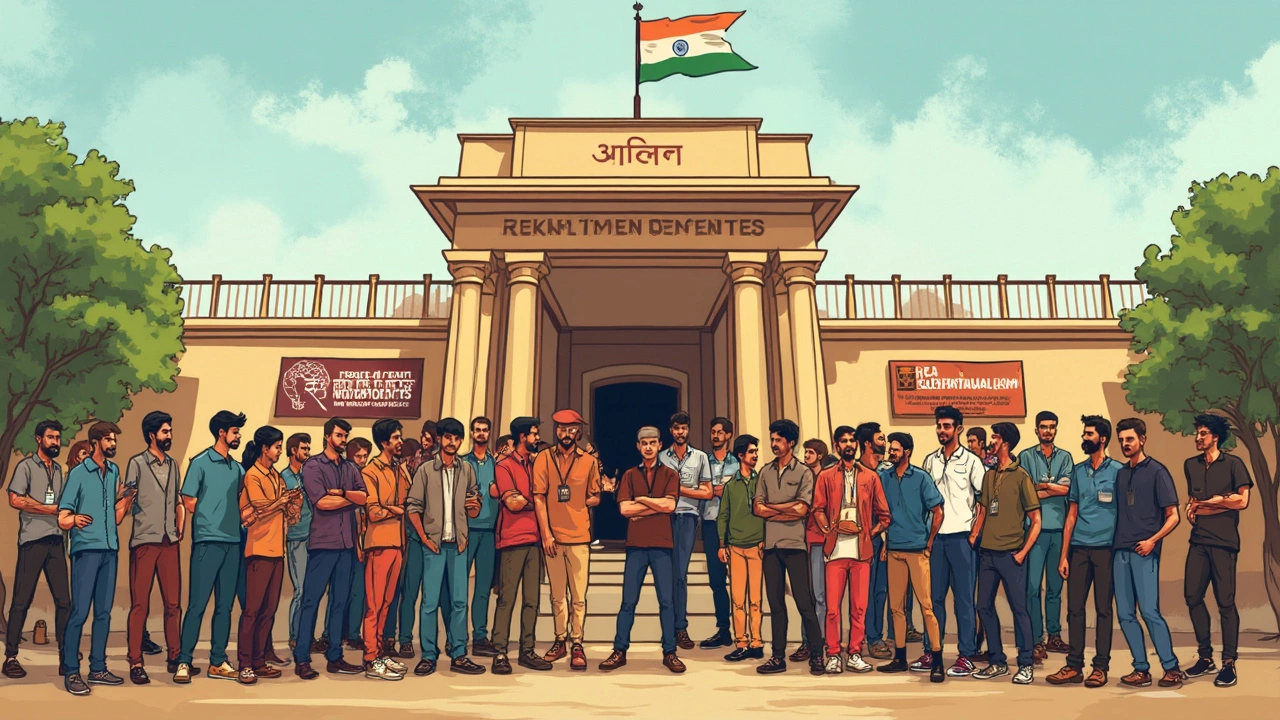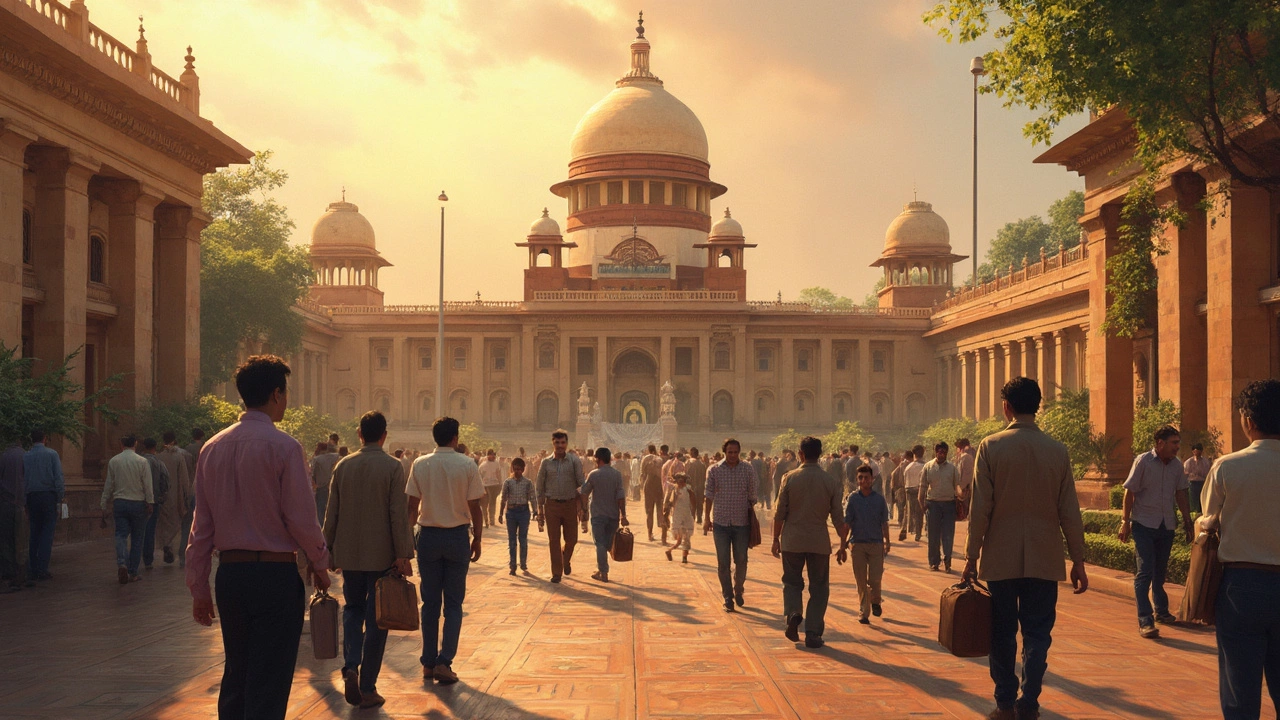The first thing you need to know: government jobs are seriously popular, and they’re not just after the obvious perks like job security and stable pay. You can have a pile of degrees, but so do thousands of others. In a recent national-level exam, more than two million people showed up for less than two thousand seats. That means some jobs have acceptance rates lower than top Ivy League schools.
But don’t panic. Your chances depend on more than just raw numbers. Your background, the category you apply for, and how sharp your prep is all count big-time. For example, specialist roles with niche skills can be less crowded than general seats. Some regions have fewer applicants, too. Understanding the lay of the land helps you aim smarter—and not just harder.
- How Competitive Are Government Jobs Really?
- What Influences Your Chances?
- Mistakes and Myths to Avoid
- Practical Moves That Actually Help
How Competitive Are Government Jobs Really?
If you’re thinking about landing a government job, you’ve probably heard about the crazy competition. Honestly, it’s no joke—these jobs draw millions of applicants every year. In India’s SSC Combined Graduate Level (CGL) exam 2024, over 30 lakh (3 million) people applied for roughly 7,500 positions. That’s less than a 0.3% selection rate! Civil services, railways, public banks, and teaching posts all see similar floods of interest.
Why does this happen? More than anything, it’s the perks. Government gigs come with stability, fixed working hours, guaranteed pensions, and often, better healthcare than most private jobs. These perks matter so much that even folks with engineering degrees or MBAs line up for entry-level clerk roles. A 2024 survey by Youth4Work reported that over 60% of Indian graduates would “prefer a government job over a private one, even if the starting salary is lower.”
"Getting a government job isn’t just about being smart—it’s about being prepared for the specific game these exams play,” says Aditya Kumar, founder of SarkariPrep.org. "For every one post, there are thousands who want it. But if you study strategically, your odds get way better."
If you check out the hiring numbers across countries, you’ll see similar patterns. In the US, a competitive Administrative Law Judge exam in 2023 had over 10,000 applicants for just 50 seats. That’s stiff competition, but not impossible.
Certain jobs tilt even harder towards tough competition. UPSC Civil Services in India is notorious. Bank PO exams? Same story. Even at the state level, the picture’s similar. The real point: it’s tough, but with the right prep, not a lost cause. Plenty of folks crack it every year, and most of them don’t have magic tricks—they just work methodically and know what to expect.
What Influences Your Chances?
Getting a government job isn’t just about how well you fill out forms or memorize random facts. There are a bunch of real factors that tip the odds. Some things you can control; some you just have to work around.
First off, reservation categories matter. If you fall under OBC, SC, ST, or other quota groups, you have a different cutoff and competition pool. For example, in Indian government exams, some posts have almost 50% of seats reserved one way or another. Your competition drops massively in some categories.
Age limits catch people off guard. Most upper age caps are around 27-30 for general candidates, but quotas often mean a few years extra. Some roles—like banking clerks—are strict about it. Double-check the notification: missing the age limit by just a day knocks out a lot of hopefuls.
Location is a sneaky one. Jobs in tier-1 cities draw crazy crowds; rural or far-flung postings might end up with fewer applicants. A 2024 report showed that in small North-Eastern states, a district-level clerk job had just 50 applicants, while Delhi had thousands for the same role.
Here’s a quick breakdown of factors that usually make the biggest difference:
- Educational qualification: Do you fit the minimum? Some jobs require just high school, others want postgrads.
- Number of vacancies: More seats = better odds, but people chase these hard.
- Exam pattern changes: If a new subject or skill is suddenly in the test, a lot of old prep books become useless. Stay updated.
- Physical/medical standards: For police, railways, and defense jobs—these can catch you out even if you ace the paper.
- Application fill rate: In some years, late notifications or confusing applications mean thousands get rejected before the exam even starts.
To give you a better idea, here’s how some of these factors play out side by side:
| Factor | 2023 Typical Value/Stat | Notes |
|---|---|---|
| Exam acceptance rate (Clerk, SSC) | 1:1700 | One job for every 1,700 applicants |
| Seats reserved (average) | 45% | Across state and central jobs |
| Max age (general, most roles) | 27 years | Varies by role and category |
| Physical test cutoff (Police, male) | 1600m run in 6 min | And other standards apply |
In short, your chances are shaped by a mix of where you fit, what you know, and how closely you follow every rule. Keep a close eye on the details—they can make or break you.

Mistakes and Myths to Avoid
A ton of folks trip up on the same slip-ups when it comes to chasing a government job. Probably the biggest myth is thinking you just need to memorize a few books or that luck plays the biggest part. In reality, recruiters are looking for consistent, all-round performers—especially in the tougher, multi-stage exams.
Another mistake? Ignoring the competition. Some people assume that their degree or a year of random prep will be enough. Here’s a kicker: in the SSC CGL 2024 exam, only about 1 out of 340 candidates made it through all stages. That’s why blindly applying without research wastes your time and your energy.
Let’s look at a few myths and mistakes people make—and how to sidestep them:
- Thinking all government jobs are the same: Pay scales, roles, promotion speed, and even job stress vary widely, from banking to civil services. Every exam and organization’s got its quirks.
- Believing last-minute cramming works: These exams usually test logic, current events, and problem-solving. Crash courses rarely stick—real prep takes steady work over months.
- Skipping the official notification: Missing out on eligibility updates, changes in age limits or syllabus? That’s how people get their forms rejected before even reaching the exam hall.
- Underestimating interview or skill rounds: Written marks aren’t everything. In UPSC 2023, almost 13% of toppers were dropped due to poor performance in personality tests.
To show you how tough these odds can be, check out this quick table:
| Exam Name | Applicants | Available Seats | Success Rate (%) |
|---|---|---|---|
| UPSC Civil Services (2024) | 1,100,000 | 1,016 | 0.09 |
| SSC CGL (2024) | 3,700,000 | 11,000 | 0.29 |
| Bank PO (IBPS 2023) | 4,900,000 | 6,200 | 0.13 |
Don’t buy into shortcuts or get tricked by coaching center hype. The path is crowded, but if you ditch the myths and face the facts, you’ll stay ahead of most of the crowd still spinning their wheels.
Practical Moves That Actually Help
If you’re tired of being another name on the list, you need to play smart with your preparation. Churning through textbooks isn’t enough. The way you approach government job exams and interviews can make or break your chances.
- Prioritize last year’s questions and real-life mock tests. Top scorers usually say they spend over half their study time on the actual formats that show up in exams. Don’t ignore these, especially the pattern changes in recent years.
- Stick to a strict schedule—and tweak it by tracking your weak spots. Apps like Gradeup or Oliveboard let you analyze where you keep slipping. Fix the holes first instead of going over what you already know.
- Stay updated with current affairs the right way. Daily news, government press releases, and specific monthly magazines (like Pratiyogita Darpan in India) often cover what pops up in exams. Skimming headlines won’t cut it—focus on government announcements and schemes.
- Don’t go it alone. Joining a reliable study group, even the virtual ones on Telegram or WhatsApp, helps you stay accountable and exposes you to different ways of thinking. Dozens of people crack the coding or essay section by sharing tips in these circles.
- Get the paperwork perfect. Dozens of candidates get rejected every year not for low scores, but for incomplete forms or missing documentation. Double-check every detail—especially those online uploads where a simple name mistake can cost you the seat.
And here’s something most people don’t realize: the interview or personality test matters more than you might think in some government roles. It’s not just about scores—they want to see if you actually fit. Practice out loud with friends or online mock interviews so you don’t freeze up.
If you hit a setback, remember most successful candidates fail at least once before making it. The trick is learning exactly where you messed up and adjusting your plan instead of just hoping for better luck next time. Small changes can seriously shift the odds in your favor.



